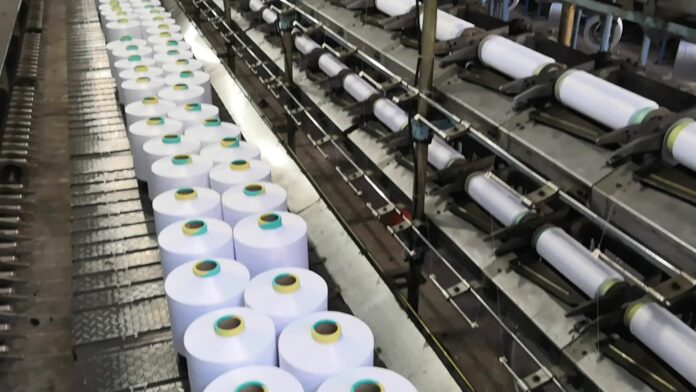So it finally happened. The two steel mill owners took over a publicly listed textile mill. Back in October 2020, this magazine had covered an unusual piece of news from the Pakistan Stock Exchange. Ravi Textiles Mills had just been informed that two individuals, Chauhdry Muhammad Shafique and Muhammad Ahmad Raza, wanted to aquire more than 51% of all shares in the company, along with management control. The offer was so new, that when Profit contacted Ravi Textiles at the time, they had no idea who the group was or their motives, apart from the fact that they were based in Lahore.
Well, no longer. Ravi’s staff will now have to deal with an entirely new management – assuming they are kept around at all. In a notice to the PSX on March 4, the exchange was informed that the two aquirers had entered into a share purchase agreement with 14 individuals and two private limited companies to acquire 15,748,746 shares, or 62.99% of the company. The total cost was to be Rs30 million.
That is a fair amount of money for Ravi Textiles – a company that ceased production in 2015. To recap, the company is a publicly listed company that was incorporated in 1984, and was designed to to manufacture and trade yarn. But it failed to do so. Its mill, which is located in Kasur district, suspended operations between 2012 and 2014, and again between 2015 and 2020. If one looks at the ‘Six years at a Glance’ section of the company’s financials, there is a gaping blank where it should say ‘Yarn Sales’.
What happened? At the start of the 2010s, Ravi Textile Mills fortunes began to dip. As the company noted in its financials, it had a litany of problems including but not limited to “volatile changes in prices of raw materials, disproportionate increase in price of yarn, volatile yarn market, bearish yarn market, increase in energy cost, scheduled and unscheduled extensive load shedding of electricity, and high mark up rates charged by banks.”
This resulted in a ‘squeezed liquidity’ position of the company, and the mill was not able to repay its short term borrowings and finance costs. Banks chose to not renew the credit facilities of the company, which expired in June 2011. And so management suspended operations at the mills, while it sorted out compromises with banks.
Scraping together some directors’ loans, the company managed to resume operations of the mills in June 2015. This turned out to be very short lived, and it was suspended again in August 2015. It seems that Ravi Textile Mills was facing the full brunt of the crisis in the textile industry. So the company decided to sell its assets. In February 2019, it sold the mills located in Kasur to Waqas Rafique International – all except the vehicles – for Rs300 million. The money from the sale of the assets was then used to repay the company’s liabilities.
The company made Rs113.3 million in ‘other’ income in 2019, which allowed it to make a profit of Rs 101.9 million, after a loss of Rs34.7 million the year prior. In 2020, the company made Rs41.7 million in ‘other’ income, and Rs30.2 million in profit.
Then, in August 2020, the company decided to lease a cotton ginning factory in Bahawalnagar from Noman Cotton Ginning Pressing Factory in Bahawalnagar. It was an unusual move, as a ginning factory is technically a step back in the textile supply chain. But the move paid off. An annual lease rent of Rs1.6 million was signed, and the factory was handed over to Ravi, just in time for the ginning season that begins in September. According to the latest annual report, after the completion of necessary repair and maintenance, the company started its new operations from September 2020, and heard that magical word: revenue (the company earned Rs25 million in that month).
It seems that the entire chain of events was just a prelude to this change of control. Chaudhry Muhammad Shafique is the CEO and head of the Chaudhry Steel Re-rolling Mills, a public unlisted company in Lahore. Muhammad Ahmed Raza has more than 30% share in BECO Steel Re-rolling mills, a private company. While there is limited information on BECO, Chaudhry Steel Re-rolling has been around since 1992, makes bars and billets, and has an annual production capacity of 348,480 MT per annum (in 2017). Its profit in 2017 stood at Rs512 million (Rs191 million in 2013).
And change they did. Of those 14 individuals, seven used to sit on the board of directors. Muhammad Waseem-ur-Rehman was the CEO. No longer: the two steel owners brought in an entire new board, and Chaudhry Muhammad Shafique is now the new CEO, while Sarwar Sultana is the new chairperson of the board, replacing Aftab Sarwar.
So what is a profitable steel company doing in buying a dud of a textile mill, particularly when the steel sector is expected to take off due to the recent construction sector boom? Well, Ravi Textiles Mills is currently sitting on the PSX’s defaulters list. There is a slim possibility of a reverse merger, in which a private company becomes a public company by acquiring it. Acquiring a non-operational listed company is often easier and less time consuming than an IPO.
Will it happen? Let us see. After all, on March 10, the exchange was informed there will be a board meeting to discuss business operations and other corporate matters. Will Ravi cease to exist? We will have to wait to find out.


























hostile takeover
The writer has no business sense
Salam.. Its very informative I would like to get some information from Amtex textile about its shares trading in PSX and also about ANL future look…. Thanx